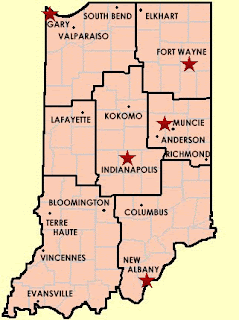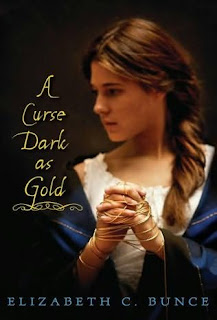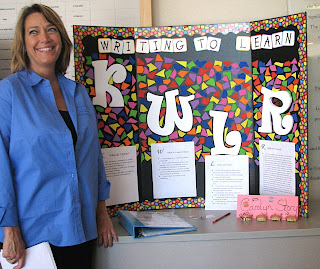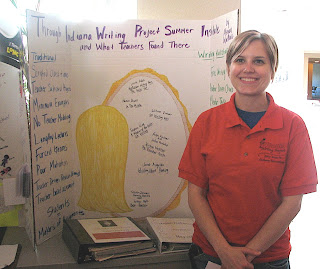
Using text from your own classroom, we will analyze the craft, read like writers, and develop lessons. Our text,
What You Know By Heart by Katie Wood Ray, will guide our journey for the week. Our goal comes directly from Katie, “We need to know, by heart, what it is we are trying to teach when we are teaching writing.” Come “muck around” with the text you are familiar with and find new practical applications for the classroom.
Getting to the Heart of the MatterPrimary and secondary teachers came together for a week of conversation, learning, and sharing. Each teacher, the scope of experience ranging kindergarten to twelfth grade, eager to take Katie’s words, “know, by heart, what it is we are trying to teach when we are teaching writing” and apply it to our classroom curriculum.
The first day blossomed into rich discussion surrounding the contents of the book,
What You Know By Heart. Writer’s notebooks, our own writing, and a clear understanding of choice dominated the morning conversation, while the afternoon gave way to the difficult concept of craft study thinking vs process study thinking. One participant made the analogy of heart vs standard. When looking at writing and curriculum it is useful to look at craft and understandings as synonymous,
where you want to go – the outcome and strategies and process are
how you get there – the authors purpose and thought process.
By the end of the day we realized the rough work ahead of us. Thinking about how we think does not always make for particularly easy curriculum development. “
A line of thinking that begins with telling the stories of our writing experiences and ends with the development of writing curriculum that we can actually envision our students using in their work” became our mantra for the task before us. We would do all of this hard work keeping in our heart something we did know as teachers of writing, “there is no single, right, and magical process for writing.”
Enter Wondrous Words into our week. To begin this hard work of analyzing the text we use in our classroom, we needed to look at chapters 9 and 8 from
Wondrous Words. From these chapters came our guides and references for the mucking around we would do. In order to look at text, we needed to know what we were looking for. Knowing our classroom and our hearts as teachers, we began by looking at the “craft terms” Katie lays out in her book. By utilizing her list, we each made a list that would benefit our own work.
Next, we used three picture books,
Night in the Country,
Grandpa Never Lies, and
Canoe Days to help us transition from “craft thinking to process thinking” according to Katie. This actually was harder than we thought. Realizing the illustrator puts his own spin on the story with pictures, we found it easier to work with the text minus the pictures first, identify the craft and then pull the book with the illustrations in later.
A suggestion was made for a fieldtrip to the Muncie Public Library. This gave us the opportunity to look at other books, see the craft, and discuss the use in the classroom. We were reading like writers! Although many of these books contained a wealth of craft, we knew our task remained – use the books in your classroom!
Mucking around with our own texts – finally!The purpose of this Institute for each of us was the same, yet different. Yes, we wanted to take the text we use with our class, analyze the craft, read like writers, and develop lessons for those texts, yet the lessons were what set us apart. Keeping Katie in mind and how she uses text, we envisioned ourselves “pulling this book (our classroom text) out to show a ‘writing move’ to a student.” Then we began crafting our own lessons for our own classroom. Fingers flew across keyboards as each participant typed text and made charts of craft in each text.
Occasionally interruptions of “ah ha” moments would happen. Tammy noted, “There will be reading going on in the writing workshop as your students learn to read like writers.” Shirley made the analogy of an orchestra conductor, “you can bring it all together when you are the conductor, bringing the reading and the writing part together.” Alena commented, “We can include the speech and reading strategies and standards. We listen to the different pieces practicing.”

Submitted by Tammy Taylor and Linda Valley
 Students Ready for ISTEP" will be offered from 8:30-11:30AM. This session will aid participants in creating a writing cycle that approaches "writing to a prompt" as a manageable genre. This Saturday Seminar will be held in Room 292 of the Robert Bell Building, Ball State University, Muncie, Indiana 47306.
Students Ready for ISTEP" will be offered from 8:30-11:30AM. This session will aid participants in creating a writing cycle that approaches "writing to a prompt" as a manageable genre. This Saturday Seminar will be held in Room 292 of the Robert Bell Building, Ball State University, Muncie, Indiana 47306. Students Ready for ISTEP" will be offered from 8:30-11:30AM. This session will aid participants in creating a writing cycle that approaches "writing to a prompt" as a manageable genre. This Saturday Seminar will be held in Room 292 of the Robert Bell Building, Ball State University, Muncie, Indiana 47306.
Students Ready for ISTEP" will be offered from 8:30-11:30AM. This session will aid participants in creating a writing cycle that approaches "writing to a prompt" as a manageable genre. This Saturday Seminar will be held in Room 292 of the Robert Bell Building, Ball State University, Muncie, Indiana 47306.

















